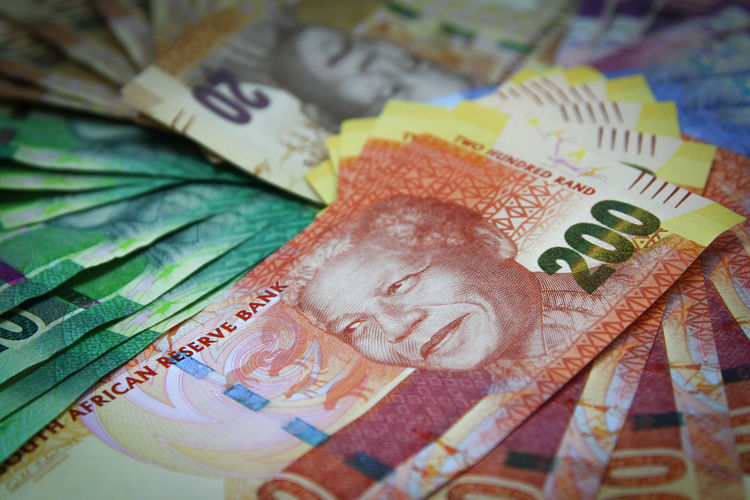- Impact of Africa on South Africa’s Economic Performance ‘underestimated’
Sub-Saharan Africa (SSA) is currently the main destination for South African exports and its influence on the economic performance of South Africa is being “underestimated by many commentators”, International Monetary Fund (IMF) senior resident representative in South Africa Dr Montfort Mlachila avers.
Speaking to students at the University of Johannesburg on Thursday, Mlachila pointed out that the rest of Africa accounted for 30% of South Africa’s total exports in 2015, which was significantly larger than China’s 12% contribution. In addition, South Africa’s foreign direct investment flows to SSA were rising, driven by high profit margins in the rest of the continent.
“This is something most people don’t realise. People think that South Africa mostly exports to Europe, or America, or China,” the Malawian-born economist, who has spent 20 years at the IMF, highlighted.
Therefore, SSA’s growth performance, which weakened sharply in 2016, had a “material impact” on South Africa. Likewise, South Africa’s performance influenced the rest of the region.
However, the growth performance across Africa, where growth on average slowed to only 1.5% last year, was by no means uniform. Some countries, including Ivory Coast, Tanzania, Kenya and Senegal, continued to grow strongly. In fact, the IMF estimates that median growth across SSA was 3.8% last year, with the overall average weighed down by the poor performance of large commodity-linked economies such as Angola, Nigeria and South Africa.
For Mlachila the obvious policy implication of this “mutual interdependence” is for South Africa to intensify efforts towards regional integration. “Although relations have already expanded between South Africa and the rest of the region, trade is not nearly has high as it could be.”
Trade and Industry Minister Dr Rob Davies has described the promotion of African regional integration as South Africa’s “overriding” trade priority, but has admitted that progress on the Trilateral Free Trade Area (T-FTA) has been slower than initially hoped.
Should the T-FTA materialise, it will encompass the 26 member States represented in the Southern African Development Community, the East African Community and the Common Market for Eastern and Southern Africa and create a market of 600-million people, valued at $1-trillion a year.
Besides regional integration, the IMF felt South Africa needed to pursue a comprehensive package of structural reforms to extricated itself from its current low-growth path. South Africa grew by only 0.3% in 2016 and has recorded negative per-capita growth for the past three years.
The IMF currently expects the economy to expand by only 0.8% in 2017, which Mlachila admits to being near the bottom of the current consensus among economists – the IMF will update its regional and world growth figures in April.
Economic policy uncertainty was a key concern, as were the rise in debt levels and the risks associated with government guarantees provided to support the debt-raising efforts of State-owned companies.
Analysis conducted by the IMF drew a direct correlation between economic policy uncertainty and the muted export response of South African firms to the fall in the value of rand during 2016. It was also constraining investment, as well as business and consumer confidence.
“Growth in South Africa is fundamentally a structural, rather than a cyclical, problem – the underlying potential growth of the country has fallen. And we see structural reform as being the fundamental problem to address urgently to facilitate and increase growth and to make it more inclusive.”
In the short-term, the country could adopt “an initial set of targeted measures” to lower uncertainty and bolster confidence. The measure could include ensuring that there was a consistent economic policy message across government, expanding access to broadband and reducing the cost of exporting through South African ports.
By contrast there was limited scope to deploy fiscal and monetary policy to stimulate growth, although the IMF did not expect interest rates to rise in light of the fact that inflation expectations appear to have been brought under control.
“On the fiscal policy stance, the recent Budget, we think, manages to balance the need to lower the medium-term debt burden without unduly constraining growth.”

 Forex3 weeks ago
Forex3 weeks ago


 Naira2 weeks ago
Naira2 weeks ago
 Billionaire Watch2 weeks ago
Billionaire Watch2 weeks ago




 Naira2 weeks ago
Naira2 weeks ago




 Naira2 weeks ago
Naira2 weeks ago




 Naira1 week ago
Naira1 week ago




 Naira4 weeks ago
Naira4 weeks ago




 Naira3 weeks ago
Naira3 weeks ago




















